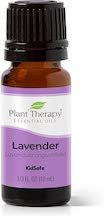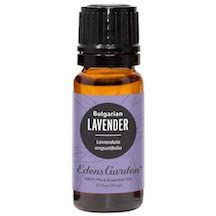Lavender Essential Oil for a Restful Night Sleep
Lavender essential oil has been said to promote relaxation, ease stress, and anxiety. Here's everything you need to know.
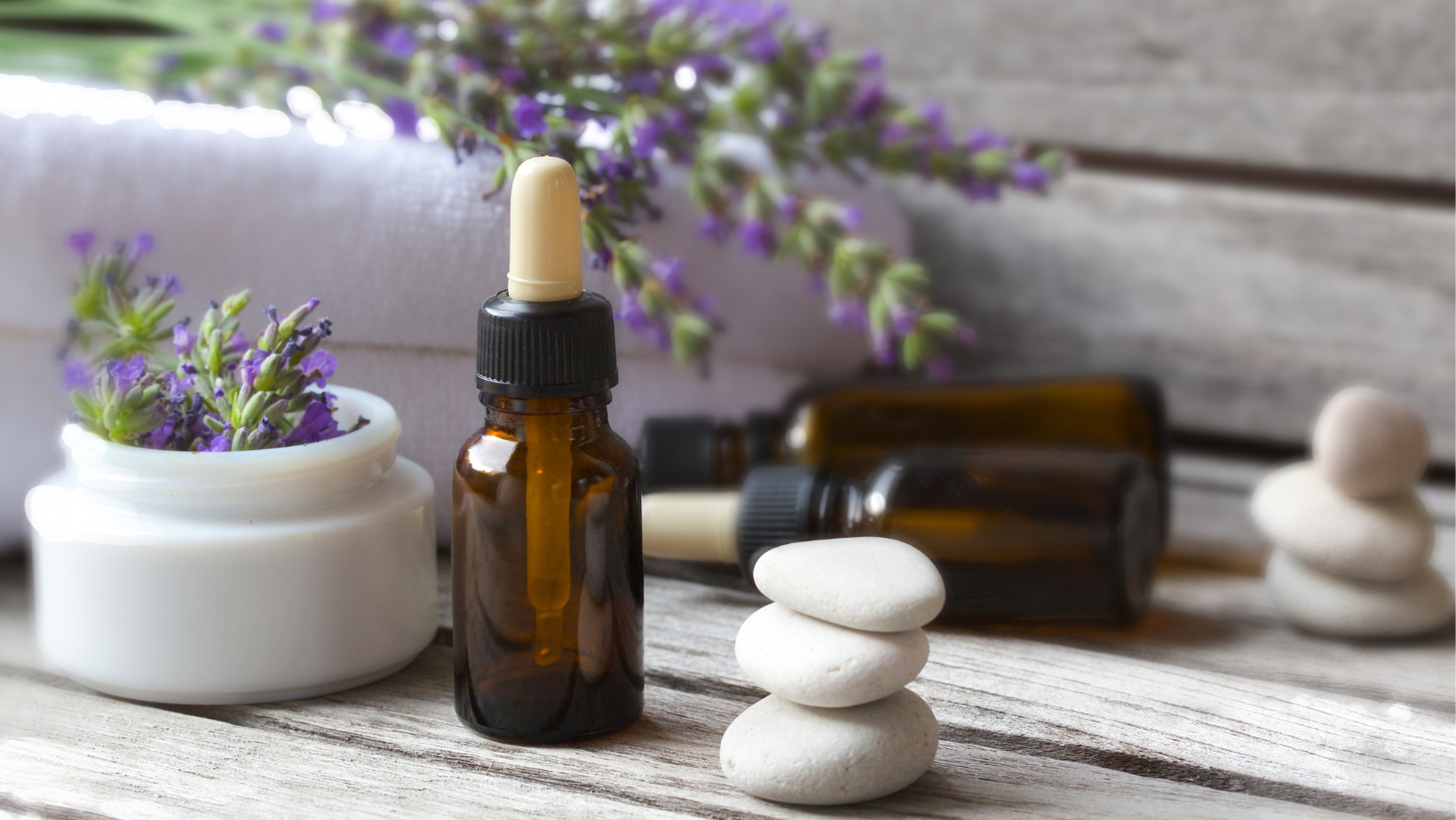
Lavender has been used for thousands of years to help calm anxiety, ease stress, relieve pain, and promote sleep. Today, this versatile oil is still widely used around the world to treat everything from headaches to stomachaches.
The best way to use lavender essential oil is topical. You can add a few drops to your bath water, rub some into your skin, or even inhale its aroma directly through your nose. It has a highly relaxing, pleasant scent and soothing effect, and it’s also rich in detoxification, antihypertensive, and sedative properties.
Lavender essential oils are known for their calming properties. Lavender essential oils have been used in aromatherapy for centuries. They're also great for relieving stress and anxiety.
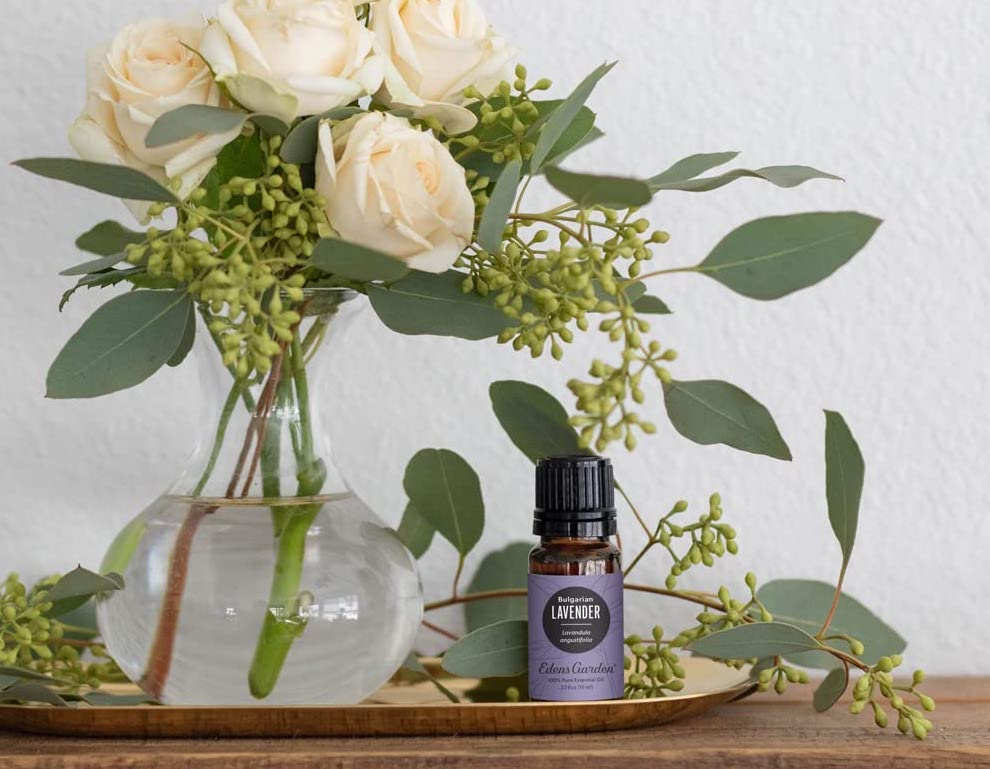
What is Lavender Essential Oil?
Lavender has long been known for its calming properties. It was once used to treat insomnia, anxiety, depression, stress, and other ailments. Today, it’s widely used as a natural remedy for relaxation, sleep, and mood enhancement.
Lavender essential oil is extracted from the flowers of the lavender plant. The scent is very strong, and it contains linalool, linalyl acetate, linalyl formate, camphor, eucalyptol, cineole, terpinene-4-oil, menthol, methyl chavicol, and alpha-terpineol.
Some lavenders are similar to the classic lavender scent, but others are more gentle, bolder, and herbaceous.
How We Choose Lavender Essential Oil
Because the FDA doesn't regulate essential oils, companies aren't required to substantiate their claims about their efficacy or production processes. You can still look for specific clues about the product you're buying.
Beyond looking for the chemical names on the lavender essential oil labels, look for products that use the word “lavender” or “essential oils” instead of “oil.” Instead, look for terms like “natural ingredients" “organic product", and “organic ingredients".
True lavender typically has high levels of linalool and linalyl acetate esters but is relatively low in camphor. Lavender essential oil prices will be higher than most other essential oils because lavender essential oil comes from large volumes of plants. Avoid cheap grocery stores and drugstore oils. They're not worth it.
Not all lavender plants are created equal. We’ve researched the different types of lavender essential oils to help you choose the right one for your needs.
Plant Therapy’s lavender essential oil is kid-safe, a range that the brand has created to ensure that children only use the safest and purest form.
It has a rich, full-bodied floral scent that provides a pleasant, peaceful smell that promotes calm and relaxation. It’s great for mixing with a carrier oil and massaging the skin. It has natural qualities that lend themselves well to aromatherapies and premium skin care. The oil can be applied directly to your scalp as a hair tonic.
This pure, therapeutic grade, quality-assured oil was steam distilled to ensure the highest quality essential oil. It has a sweet and floral scent. Use a diffuser in the bedroom to ensure you get a peaceful sleep.
Revive’ s lavender oil is grown by Bulgarian farmers who use their ideal climate and higher altitude to grow some of the best lavenders in the world. Add a few drops of essential oil to the aromatherapy diffuser just as you're about to go to sleep. The aroma therapy will permeate the senses, calming the brain and relaxes the body.
Eden’s Garden is a family-owned business of women who started their dreams of sharing high-quality, effective natural products.
It comes already diluted in a fractionated coconut carrier oil to help reduce skin sensitivity. Rub the oil onto your wrists, behind your ears, or along the top of your feet for an almost immediate relaxing effect. To relieve joint pain, apply it around arthritic knees.
What’s the Difference Between English Lavender and Spike Lavender?
English lavender comes from Lavandula Angustifolia, whereas spike lavender comes from Lavendula Latifolia. Each has its unique chemical makeup and should be used for specific health conditions.
English Lavender
English lavender consists of three different species: Lavandula angustifolia, Lavandula vera, and Lavandula officina. Spike lavender essential oil help relieve more conditions than essential oils derived from English lavender plant.
According to an article published by the National Institutes of Health (NIHR), English lavender is rich in linalool and linalyl acetate, which have therapeutic properties and calming effects.
This essential oil can help alleviate stress, and anxiety, even within dental or premenstrual conditions when used in aromatherapies. A study found that lavender aromatherapy helped people fall asleep faster. A study published by another NIH report found that applying essential oil topically during massage therapy helped relieve osteoarthritis knee joint pain.
Another use for pure English lavender essential oil is to help heal wounds faster because of its inherent antimicrobial properties. Lavender oil blends well with cedarwood, clove, clary sage, geranium, lemon, and neroli.
Spike Lavender
Spike lavender is the botanical name for lavender. It has higher amounts of a natural component that smells like camphor, making its scent more medicinal.
Lavender has been proven to be an antiviral compound. A study by the National Institutes of Health suggests that essential oils derived from spike lavender may help ease respiratory symptoms such as bronchitis, sinuses, or other viruses. Spike Lavender oil is also used to help relieve headaches.
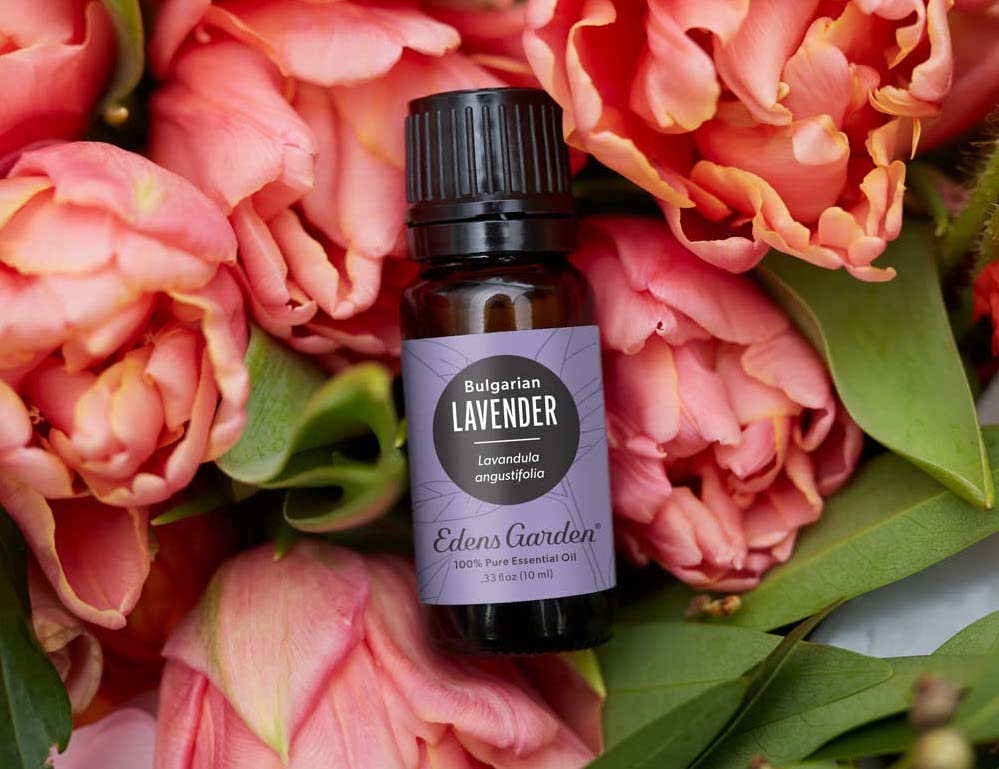
What's the Science Behind Lavender Essential Oils
Essential oils can be tricky to navigate. Ancient practices, including using potent-smelling oils for therapeutic purposes, are not licensed. There are encouraging studies supporting some essential oils, but the scientific research isn't strong.
Essential oils don't have to be labeled for their composition. The FDA does not regulate them as medicines. The FDA watches only for essential oil companies to not market their products like drugs.
You can diffuse essential oils into the air using a diffuser, spray them onto items to smell, or just sniff them from a bottle. You can apply them topically onto your skin (although you usually should dilute them in oil, like coconut or Jojoba). It's not recommended to ingest essential oils.
Essential oils are chemicals that are extracted from plants. When inhaled, they travel from the nose to the brain, impacting human emotions and physiological functions. Different oils have been found to have different effects, including influencing the release of serotonin and dopamine.
Benefits of Lavender Essential Oil
1. Improves Sleep
Lavender oil has been used for centuries as an effective sleep aid. So much so, that there are many sleep products available on the market, including pillow sprays, sleep creams, and weighted eye pillows.
However, essential oils cannot be used as treatment for sleep apnea or insomnia. Essential oils are seen as “a holistic way to support wellness,” but consult a health care provider before using them.
2. Reduces stress and anxiety
A study found that Silexan, a lavender oil preparation, was effective for treating anxiety. In addition, lavender oil has been shown to decrease anxiety in dental patients. Patients who were waiting for their appointments under the smell of lavender had lower anxiety levels than patients who were not exposed to lavender.
4. Antiseptic and anti-inflammatory
Studies show that lavender oil is better than the saline solution and povidone-iodine at closing wounds quickly.
5. Treats fungal infections
Lavender oil has been shown to disrupt fungal cell membranes, which demonstrates that lavender oil may effectively treat candidiasis.
6. Promotes hair growth
Studies in female mice show that topically applying lavender oil improves hair follicle density, hair follicle depth, and skin thickness. This suggests that lavender oil may be an effective treatment for hair loss.
7. Decreases premenstrual symptoms
A 10-minute inhalation of lavender essential oil was shown to alleviate PMS symptoms in women with mild-to-moderate PMS symptoms, partly by improving their parasympathetic nervous activity.
Side Effects
If you decide to use lavender oil as a sleeping aid, be aware that essential oils affect everyone in different ways. They can cause allergic responses, among other negative side effects. Make sure you don’t diffuse essential oils into the air until after you’ve tested them out on yourself first. It’s best practice not to use oils near pets or infants.
Lavender oil isn’t a miracle cure for sleeplessness, but it worth trying if you vet the company selling it and use it in moderation. It’s important to observe your body's response after exposure. If it doesn't respond well, then stop using it.
Lavender Essential Oils FAQs
Which lavender oil should I buy?
English lavender is a pure essential oil that can help with: anxiety, relaxation, sleep, pain, and wound healing. Spike lavender can help with: bronchitis, sinusitis, some viruses, headache.
Where can you apply lavender oil topically to help you sleep?
Apply essential oil blend on your back, chest, wrists, and feet before bed or napping.
Does lavender essential oil help you sleep?
Lavender works by calming the central nervous system and promoting slow-wave sleep, so helping you sleep longer and better. While lavender oil might seem like something that just smells nice, it can pack a pretty powerful (and well researched) punch when it comes to helping you have a restful sleep.
Is it OK to spray lavender oil on your pillow?
Studies have shown that using lavender oil before bed not only help you sleep better but also improve the overall experience of sleeping. Diffuse lavender oil an hour before bedtime. You can also rub a drop on your pillow, apply it directly to your feet and temples, or use a diffuser for your wrists.
Can too much lavender oil be harmful?
The lavender essential oil can cause skin irritation or an allergy in some people. If you experience any symptoms after using lavender, stop using it immediately.
Is it OK to sleep with a diffuser on?
Essential oil diffusers emit aromatic vapor throughout any room - so you can use them in guest rooms and kids’ rooms too. And they last for a long time, whether you’re taking a short nap or going to bed, you’ll be guaranteed deep sleep! Each essential oil has a unique composition, scent, and benefits.
Is it safe to use lavender oil every day?
Large amounts of lavender oil can be harmful. Most studies conducted on its anxiolytic effects have used between 80 and 160 milligrams per day for 6 to 10 weeks. If you apply it to canker sores, don't use more than two drops.
Do lavender essential oils help with hair growth?
Lavender essential oils stimulate hair growth. As a result, your hair will grow faster and stronger than usual.
Does lavender essential oil help acne?
Lavender oil works by killing bacteria and healing acne breakouts. It is also known to unclog your pores and reduce inflammation.
Is lavender essential oil good for sunburn?
Lavender essential oils are full of anti-inflammatory and antioxidant benefits. It can help soothe and heal the burnt areas.
Is lavender essential oil safe for pregnancy?
Lavender essential oils help with sleep and keep you calm during the second or third trimester of pregnancy.
Lavender Essential Oil for You
The lavender essential oil has a wide variety of uses. It has been known for centuries to help people sleep better, relax, and breathe easier. Lavender essential oil may help reduce pain and speed up wound recovery. Research has shown that lavender can help ease certain health symptoms.


